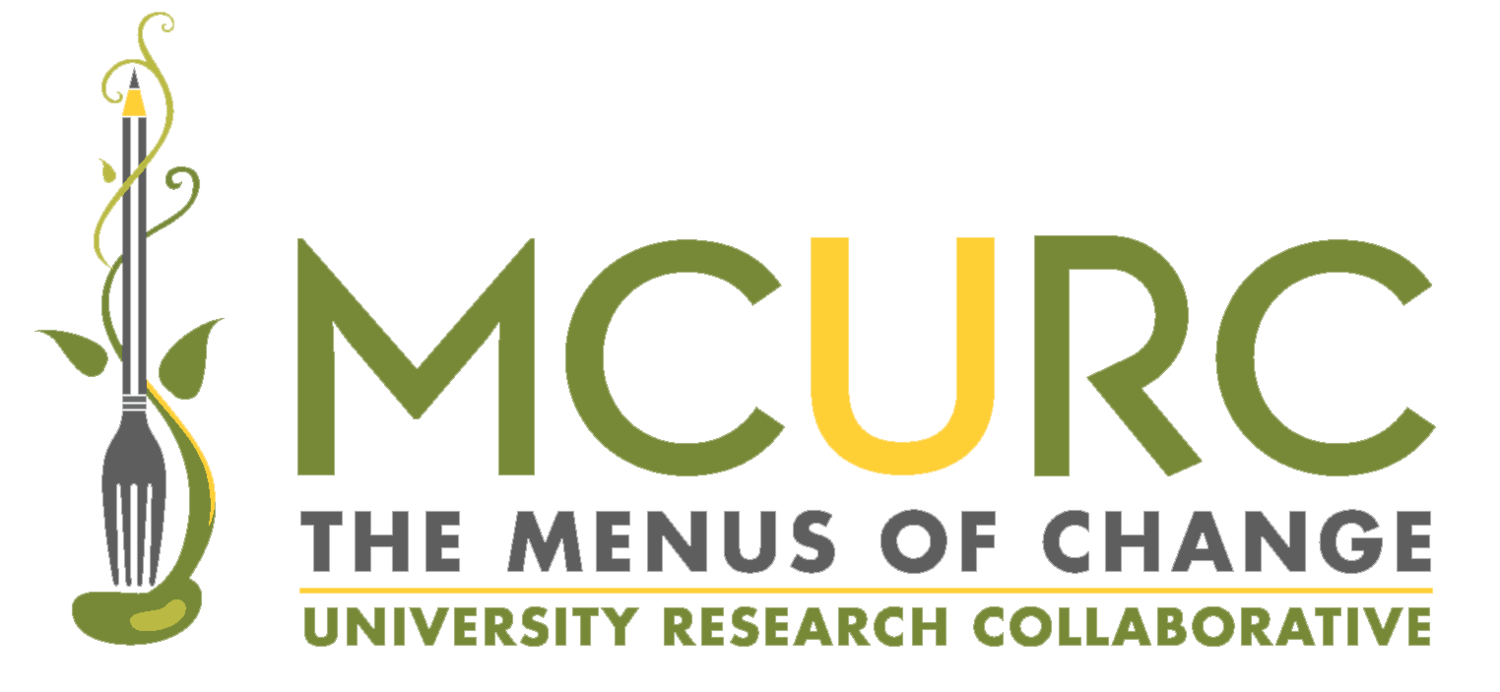
Academic Research Publications
The MCURC works to leverage the power and breadth of a groundbreaking research model, that enables us to understand everything from the most effective ways to reduce food waste, to the power of flavor-focused menu language to increase vegetable consumption. Our goal is to share those insights broadly, so that not only campus dining, but foodservice leaders from a variety of sectors, can effectively shift menus to healthier, more sustainable, delicious options.

Explore MCURC's Published Research
Our research agenda is built on:
A unique collaboration between faculty experts and dining operators in universities from all over the country and beyond.
Dining halls as living laboratories—dynamic learning environments where applied research is bridged with operational innovation, allowing experimental science to bring far more advanced results in terms of applicability in the real world, compared with traditional academic research.
Potential impact that goes beyond the university food system: college and university students are tomorrow's leaders, parents, consumers, and citizens, and being able to shift this population's beliefs and behaviors is one of the most promising strategies for building a healthy, sustainable food system for the future.
The study of food—whether focused on the related areas of agriculture, the environment, medicine and public health/nutrition, food science, hospitality, business, psychology, anthropology, history, political science, or law—is often siloed within academia. Furthermore, not all of these disciplines or programs are engaged with the culinary and business leadership of university foodservice. Food studies and food science programs that are emerging across the U.S. have started to chip away at these silos. The MCURC supports university efforts to develop food studies that are truly comprehensive, thoroughly reflected in the food choices, menu development strategies, and procurement guidelines of their respective foodservice operations.
The MCURC’s research projects use campus dining halls as living laboratories to measure the impact of food choice architecture and behavioral science interventions on students’ food choices and on the sustainability of dining operations, to support the implementation of the Menus of Change Principles:
Plant-forward promotion: Transform protein menu concepts, including the Protein Flip, and elevating plant-based protein.
Food waste reduction: Most effectively produce, promote, and upcycle food to reduce waste.
Increased food literacy: Evaluate how education can induce healthier and more sustainable food choices.



